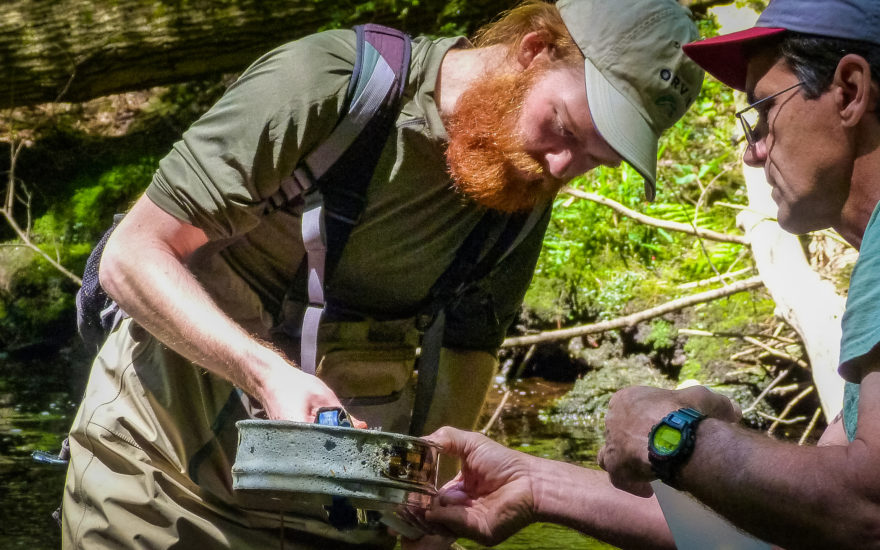Clark is committed to action-based learning, which means as an undergraduate you can join faculty and graduate students in their research.
As befits an interdisciplinary major, the research programs of environmental science professors span a wide range of academic fields. While most are from the Departments of biology, geography and sustainability and social justice (formerly IDCE) others hail from departments as diverse as chemistry, economics, management, philosophy, political science, and physics. Faculty from Clark’s George Perkins Marsh Institute, whose research focuses on sustainable environments for the public good, also contribute to the environmental science major. Faculty research interests include these environmental science subfields: environmental policy, environmental ethics, conservation biology, earth system science, climate change, sustainability, geographic information science, and ecology.
The HERO Program
As an environmental science major, you might be interested in applying to the Human-Environment Regional Observatory (HERO) Program, a unique undergraduate-graduate-faculty experience that engages in research on human-environment relationships in Massachusetts. HERO Fellows conduct hands-on research under the mentorship of Clark University faculty; their work often leads to scholarly publications, presentations at academic conferences across the U.S., and awards and honors.
You also can apply for funding to support your own research on a project of your choice during the academic year or during the summer.
Present your work
Clark’s annual ClarkFEST is an opportunity to share your research or creative work with the Clark community while you hone your presentation skills. Some projects environmental science students and recent alumni have presented are:
- Forest Regeneration After Spruce Beetle Outbreaks in the Context of a Changed Climate
- Nest Box Use and Habitat Preference in Tree Swallows
- Morphological Characterization of Threespine Stickleback in Newfoundland, Canada
- Seasonal Differences in Coral Bleaching on South Caicos Coral Reefs
- Macro-invertebrate Community Structure in Streams Affected by Conventional and Organic Cranberry Cultivation
You can also submit your research results for publication in our student-run Scholarly Undergraduate Research Journal.


